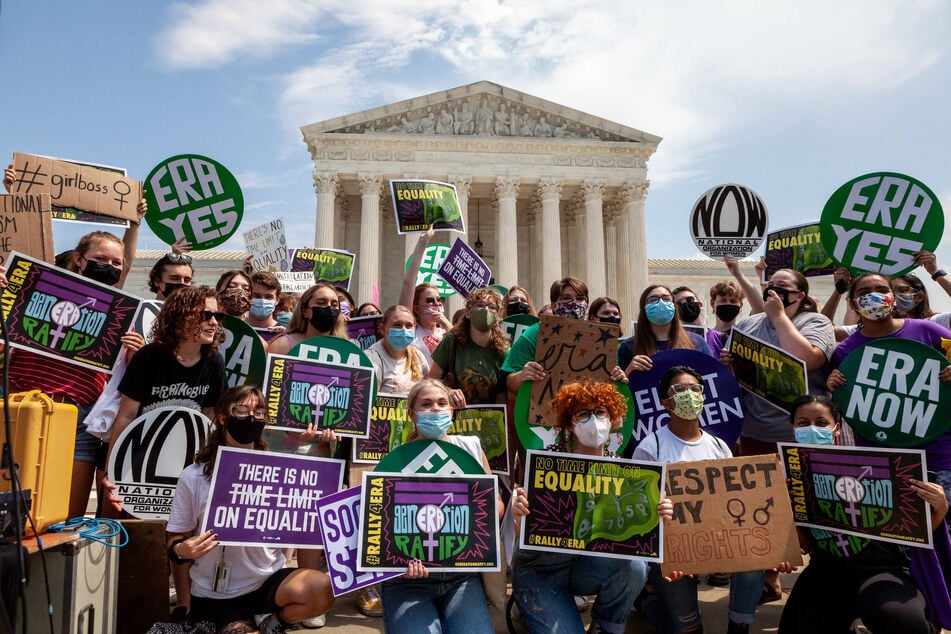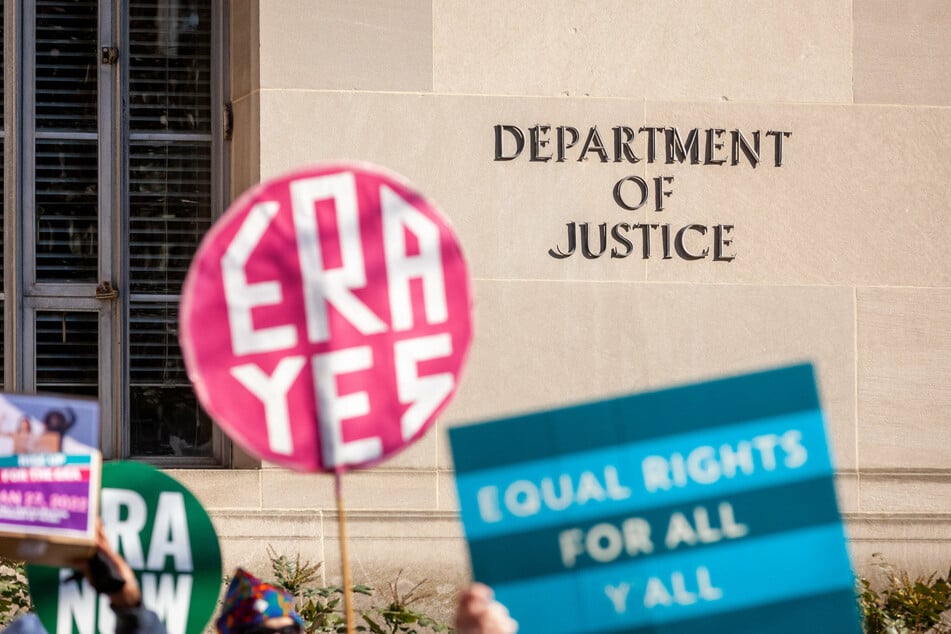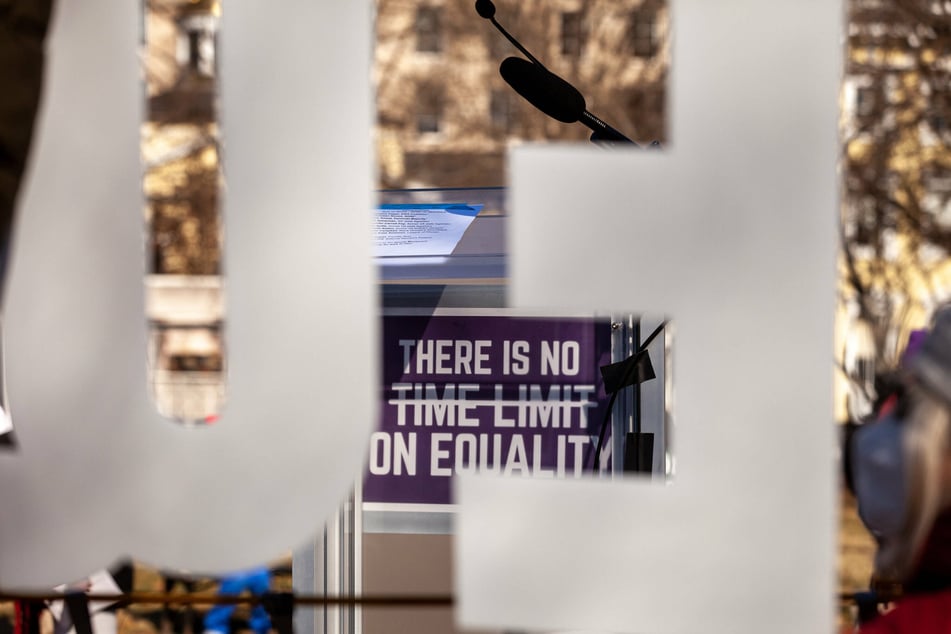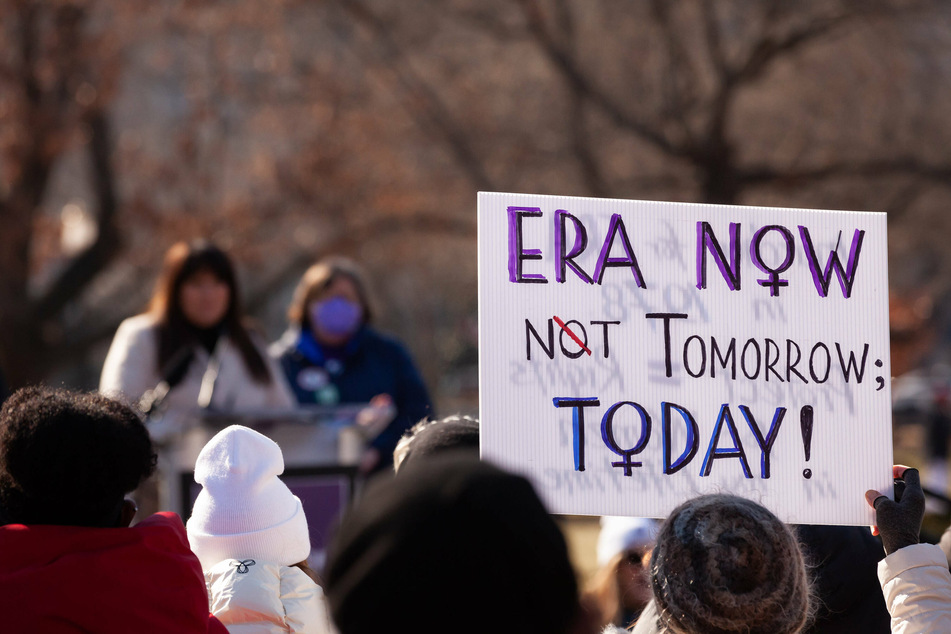Equal Rights Amendment: ERA Coalition president talks next steps in the fight for women's rights
New York, New York - Even in the 21st century, women's equality is not once mentioned in the US Constitution, but there is a coalition of activists on a mission to change that. TAG24 NEWS spoke with Carol Jenkins, president and CEO of the ERA Coalition and the Fund for Women's Equality, about next steps in the fight for equal rights.

As women's rights are under attack across the country, activists have ramped up their efforts to pass the Equal Rights Amendment (ERA). If added to the Constitution, the ERA would prohibit discrimination based on sex.
Advocates like Carol Jenkins say the ERA is the necessary foundation to ensuring equality for all women and non-binary Americans.
An Emmy-winning journalist, Jenkins spent 25 years as anchor and correspondent in New York City before joining the ERA Coalition, which consists of more than 250 organizations across the country.
Her experience in the newsroom inspired her to get to the root of the problems around sexism and racism that persist to this day.
"Perhaps a major part of the inequality in the country was based on the media in that women's stories weren't getting told and women weren't telling the stories," she remembered thinking at the time.
Jenkins went on to serve as founding president of the Women's Media Center and to establish the Progressive Women's Voices program, which aim to increase diversity in media professions and prepare female leaders to become spokespeople in their respective fields. Those were important steps, but they weren't enough to guarantee equality in the country, she realized.
"I'm a little like Alice Paul who got the vote and said that's not enough and then said, 'Let's get the ERA,'" Jenkins told TAG24, referring to the suffragist and women's rights activist who helped write the amendment.
That's when Jenkins decided to pursue activism around the ERA "because the Constitution is really the thing that's holding us back," she insisted.
History of the ERA

Amending the US Constitution is certainly no easy task, and in the case of the ERA, the effort is already 99 years in the making.
First proposed in 1923, the ERA passed out of Congress and went to the states for ratification in 1972, with the requirement that 3/4 of states vote to ratify within a seven-year time period.
That deadline was later extended to 1982, but there still weren't enough states in agreement for the amendment to pass at that point.
The ERA received renewed momentum in recent years with the rise of the #MeToo movement and women's marches, with Virginia becoming the 38th and final state needed for ratification in 2020.
On January 27, 2022, activists celebrated meeting all the requirements needed to pass the amendment after the two-year mandatory waiting period.
All that remained to be done was for the US archivist to add the text to the Constitution.
Where we stand today

That's where things got complicated.
Opponents argued that the ERA is dead in the water since the final states to ratify did so after the congressional deadline.
Advocates countered that the time limit was only included in the preamble to the amendment, meaning that it wasn't actually voted on by the states and should not be the sticking point when it comes to equal rights.
The Trump administration, clearly no fan of the ERA, sent a memo telling the archivist not to publish the amendment. Though the archivist said it would be an "honor" to publish the ERA, he has since been mired in lawsuits that have prevented him from following through.
Under the Biden presidency, the Department of Justice (DOJ) issued a clarification stating that the ERA is by no means dead.
Instead, the DOJ said Congress and the courts could resolve the issue of the time limit, which Jenkins called a "step in the right direction."
Women's rights under attack

Passing the ERA is crucial in light of ongoing threats to women's livelihood, including attacks on reproductive freedom, lack of accountability for sexual assault, the gender wage gap, and more, advocates say.
As Jenkins put it, "The reason that these things are not changing is that it is built into the Constitution. The sexism and the racism, it's the root of it. Until we fix it, we'll continue to put Band-Aids on everything."
She and other advocates are convinced that the ERA will provide the foundation necessary to afford critical protections to Americans of all backgrounds, no matter how they identify. What gives the amendment its true power is that it enables Congress to create and reinforce laws based on that non-discriminatory clause, Jenkins explained.
These protections are needed now more than ever: "We realize now, if something that's been in place for 50 years – reproductive rights – can be taken away like that, this is a fragile democracy, a fragile system of rights and protections that are subject to whims. That's the situation we've been in for 245 years."
"Think about a country that was founded on the elimination or the leaving out of the indigenous, the enslaved, and the women who lived in the country because they were not considered to be fully human, so not deserving of basic rights," she continued. "That's what we're working on now: that original sin, so to speak, where the roots of racism, misogyny, and sexism rest."
"These discrepancies persist because of this document, and we've got to fix the document."
Taking action

On March 22, the ERA Coalition will mark the 50th year that the ERA passed out of Congress and went to the states for ratification.
In that virtual commemoration event, they will honor many of the leaders who have contributed to the decades-long fight, including Reps. Carolyn Maloney, Jackie Speier, and Nancy Pelosi, along with the late Rep. Birch Bayh.
The event is just the first in a yearlong program designed to raise awareness around the ERA and push for its certification.
That's where everyday people come in, and the number one thing Americans can do this year to support the ERA is vote, Jenkins said.
"Our total democracy is at stake in addition to so many other things that simply will not get done for a generation if we do not keep equality-minded people in Congress and elect more of them so that things like the ERA can get passed," she said.
Jenkins also encouraged private citizens to call, email, and write letters to their senators urging them to vote for the ERA, as at least 60 votes in that chamber will be required to advance any measure.
Everyday people can also call on the president and vice president to "heighten their activity" in support of the amendment.
Until the ERA is passed, Jenkins fears that girls and young women will continue to see themselves as less valuable and capable than their male counterparts – a lack of confidence she often encounters in her work with various youth programs.
That's not an attitude Jenkins seems to struggle with herself. When her grandchildren visited Monticello, Thomas Jefferson's largest plantation, she said to them: "Tell Thomas Jefferson that your grandmother – your Black grandmother back in New York City – is working to fix the document that he helped write and that this country is founded on – and that we're almost there."
Cover photo: IMAGO / NurPhoto

